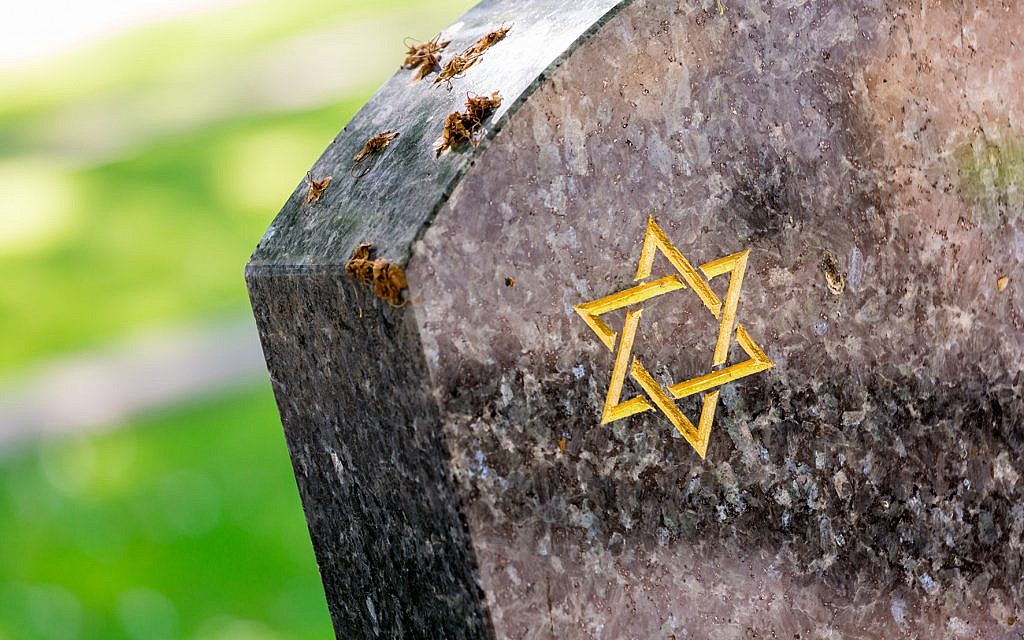Progressively Speaking: Euphemisms prevents us talking openly about death
Deborah Blausten takes a topical issue and offers a progressive Jewish response
Popular legend — though not most academic linguists — has it that the Inuit people have 50 words for snow. Why? Because when something is such a big part of life, people develop a more sophisticated vocabulary to talk about its nuances.
The same is true for the English language and the plethora of words we have for the word “rain”, from drizzle and mizzle to downpour.
But the argument that vocabulary increases when talking about a life’s phenomenon breaks down around death.
Get The Jewish News Daily Edition by email and never miss our top stories Free Sign Up
A recent Marie Curie survey reminds us there are more than 50 different euphemisms or ways of talking about someone “kicking the bucket” without having to actually use “death” or “died” or anything etymologically related to it.
Unlike weather descriptors, which give us a greater capacity for articulation, the vast death vocabulary we have is a way of shielding ourselves and each other from much-needed conversations.
The Talmud contains numerous examples of deaths where another phrase is used to describe what has happened.
He “departed this world” or “his soul left his body” are particular rabbinic favourites.
What differentiates these from phrases like “took her last bow” is that although they are also euphemistic, they represent an opportunity to explore beliefs around death — because they describe something that the word ‘death’ simply doesn’t.
In these cases, they give someone the image of a world beyond this one, or provoke a conversation about the life of the soul.
A teacher in rabbinical school told us about a child whose parent had explained they had “lost” their relative. They later found out the child had become terrified of being separated from their family when out for the day in case they became lost too.
Unlike the Talmudic phrases, the word “loss” is a good example of a euphemism which doesn’t expand meaning, and could potentially confuse or even suggest that people who are bereaved didn’t care enough to “hold on” to their loved ones.
A wide vocabulary around death is needed — not so that we can avoid saying the words, but rather that we can discuss the nuances of emotion and experience that accompany this part of life.
Deborah Blausten is a rabbinic student at Leo Baeck College

Thank you for helping to make Jewish News the leading source of news and opinion for the UK Jewish community. Today we're asking for your invaluable help to continue putting our community first in everything we do.
For as little as £5 a month you can help sustain the vital work we do in celebrating and standing up for Jewish life in Britain.
Jewish News holds our community together and keeps us connected. Like a synagogue, it’s where people turn to feel part of something bigger. It also proudly shows the rest of Britain the vibrancy and rich culture of modern Jewish life.
You can make a quick and easy one-off or monthly contribution of £5, £10, £20 or any other sum you’re comfortable with.
100% of your donation will help us continue celebrating our community, in all its dynamic diversity...
Engaging
Being a community platform means so much more than producing a newspaper and website. One of our proudest roles is media partnering with our invaluable charities to amplify the outstanding work they do to help us all.
Celebrating
There’s no shortage of oys in the world but Jewish News takes every opportunity to celebrate the joys too, through projects like Night of Heroes, 40 Under 40 and other compelling countdowns that make the community kvell with pride.
Pioneering
In the first collaboration between media outlets from different faiths, Jewish News worked with British Muslim TV and Church Times to produce a list of young activists leading the way on interfaith understanding.
Campaigning
Royal Mail issued a stamp honouring Holocaust hero Sir Nicholas Winton after a Jewish News campaign attracted more than 100,000 backers. Jewish Newsalso produces special editions of the paper highlighting pressing issues including mental health and Holocaust remembrance.
Easy access
In an age when news is readily accessible, Jewish News provides high-quality content free online and offline, removing any financial barriers to connecting people.
Voice of our community to wider society
The Jewish News team regularly appears on TV, radio and on the pages of the national press to comment on stories about the Jewish community. Easy access to the paper on the streets of London also means Jewish News provides an invaluable window into the community for the country at large.
We hope you agree all this is worth preserving.
-
By Brigit Grant
-
By Laurent Vaughan - Senior Associate (Bishop & Sewell Solicitors)
-
By Laurent Vaughan - Senior Associate (Bishop & Sewell Solicitors)
-
By Laurent Vaughan - Senior Associate (Bishop & Sewell Solicitors)
-
By Laurent Vaughan - Senior Associate (Bishop & Sewell Solicitors)






















